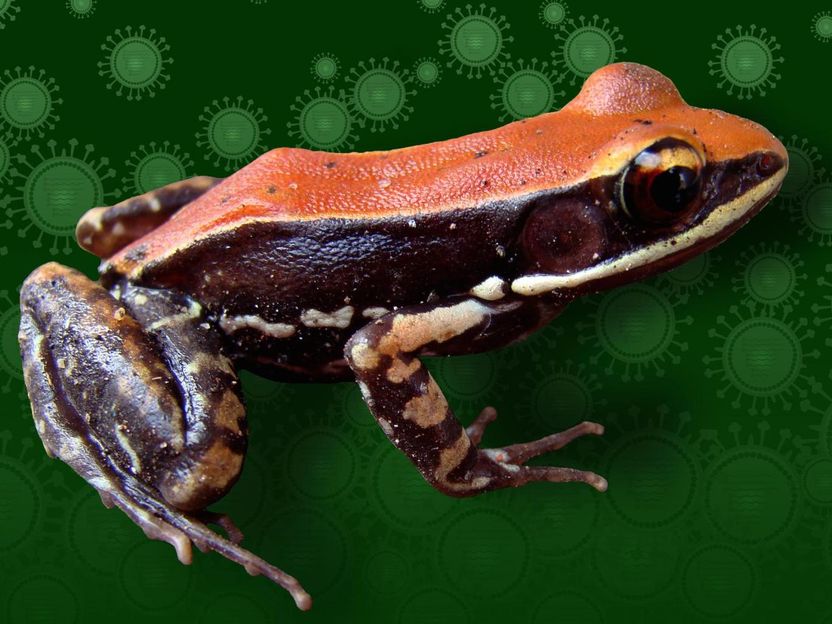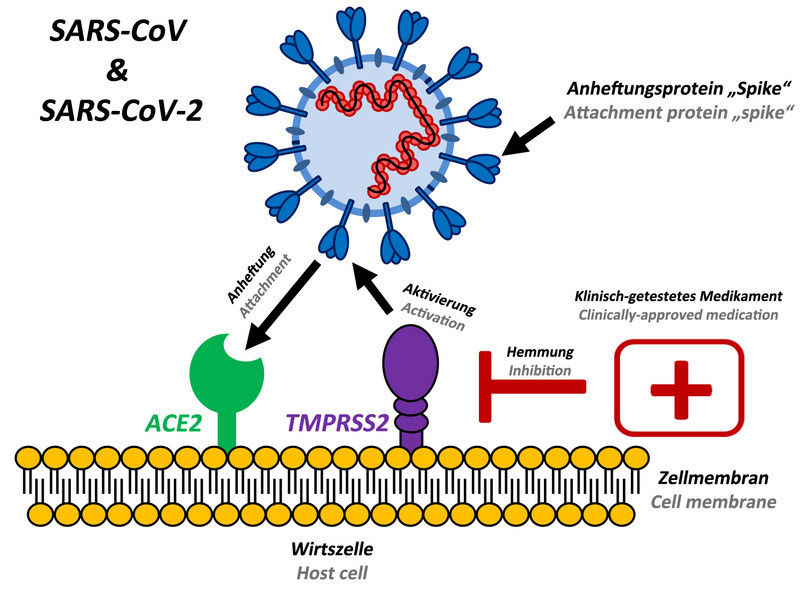Frog slime kills flu virus
Mining host defense peptides found in skin mucus
A component of the skin mucus secreted by South Indian frogs can kill the H1 variety of influenza viruses, researchers from Emory Vaccine Center and the Rajiv Gandhi Center for Biotechnology in India have discovered.

The South Indian frog Hydrophylax bahuvistara is shown.
Sanil George + Jessica Shartouny
Frogs' skins were known to secrete "host defense peptides" that defend them against bacteria. The finding, scheduled for publication in Immunity, suggests that the peptides represent a resource for antiviral drug discovery as well.
Anti-flu peptides could become handy when vaccines are unavailable, in the case of a new pandemic strain, or when circulating strains become resistant to current drugs, says senior author Joshy Jacob, PhD, associate professor of microbiology and immunology at Emory Vaccine Center and Emory University School of Medicine.
The first author of the paper is graduate student David Holthausen, and the research grew out of collaboration with M.R. Pillai, PhD and Sanil George, PhD from the Rajiv Gandhi Center for Biotechnology.
Jacob and his colleagues named one of the antiviral peptides they identified urumin, after a whip-like sword called "urumi" used in southern India centuries ago. Urumin was found in skin secretions from the Indian frog Hydrophylax bahuvistara, which were collected after mild electrical stimulation.
Peptides are short chains of amino acids, the building blocks of proteins. Some anti-bacterial peptides work by punching holes in cell membranes, and are thus toxic to mammalian cells, but urumin was not.
Instead, urumin appears to only disrupt the integrity of flu virus, as seen through electron microscopy. It binds the stalk of hemagglutinin, a less variable region of the flu virus that is also the target of proposed universal vaccines. This specificity could be valuable because current anti-influenza drugs target other parts of the virus, Jacob says.
Because flu viruses from humans cannot infect frogs, producing urumin probably confers on frogs an advantage in fighting some other pathogen, he says.
Delivered intranasally, urumin protected unvaccinated mice against a lethal dose of some flu viruses. Urumin was specific for H1 strains of flu, such as the 2009 pandemic strain, and was not effective against other current strains such as H3N2.
Developing antimicrobial peptides into effective drugs has been a challenge in the past, partly because enzymes in the body can break them down. Jacob's lab is now exploring ways to stabilize antiviral peptides such as urumin, as well as looking for frog-derived peptides that are active against other viruses like dengue and Zika.
Original publication
Other news from the department science

Get the life science industry in your inbox
By submitting this form you agree that LUMITOS AG will send you the newsletter(s) selected above by email. Your data will not be passed on to third parties. Your data will be stored and processed in accordance with our data protection regulations. LUMITOS may contact you by email for the purpose of advertising or market and opinion surveys. You can revoke your consent at any time without giving reasons to LUMITOS AG, Ernst-Augustin-Str. 2, 12489 Berlin, Germany or by e-mail at revoke@lumitos.com with effect for the future. In addition, each email contains a link to unsubscribe from the corresponding newsletter.
More news from our other portals
Last viewed contents
Life's tiniest architects pinpointed by Yale researchers
Vogelbusch optimises important aspect of the bioethanol production from woody raw materials
Mayo Clinic researchers map prostate cancer relapse - By using C-11 choline PET and MRI
Researchers discover immunity genes that give frogs resistance to deadly fungus






















































